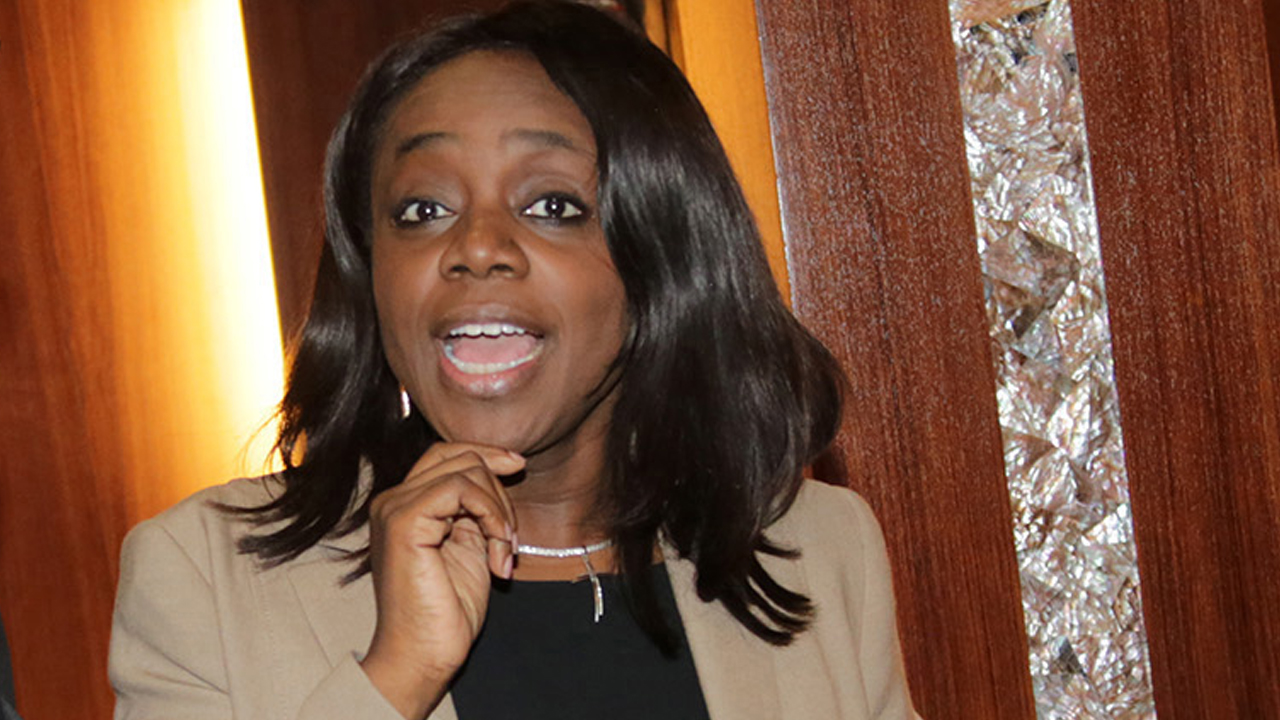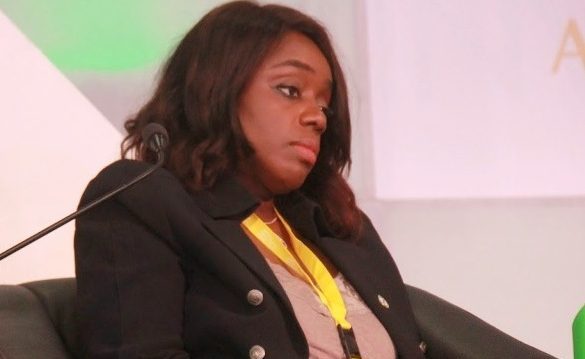The minister of finance, Mrs. Kemi Adeosun has said some state governments are yet to fully comply with the with conditions for the Budget Support facility as agreed under the Fiscal Responsibility Plan.
She added that particular states are yet to publish the mode of their financial disbursement, while some others have also not completed the Biometric Data of their staff list as agreed by the Council.
The Fiscal Responsibility Plan endorsed last year by NEC details the conditions state governments are expected to meet to qualify for FG’s Budget Support Facility which ranges from N800 million to over N1 billion per State, per month.
Adeosun revealed this on Thursday at forensic audit of revenue accrued from revenue generating agencies and meant for the Federation Account at the National Economic Council, NEC meeting presided by Vice President Yemi Osinbajo.
The Chairman of the Ad Hoc Committee of NEC on the audit, Governor Ibrahim Dankwambo of Gombe State, said the forensic audit is ongoing and assured Council that the full detail of the report would be ready in January, 2018.
He mentioned the Nigerian Customs Service and the National Communication Commission as the two agencies that are now being audited in a review that has included other agencies including NNPC.
The report is expected to detail the extent of revenue meant for the Federation but never made it to the Consolidated Account under the past administration.
BELOW ARE HIGHLIGHTS OF THE NATIONAL ECONOMIC COUNCIL MEETING PRESIDED OVER BY VICE PRESIDENT YEMI OSINBAJO
UPDATE ON FORENSIC AUDIT OF REVENUE ACCRUED FROM REVENUE GENERATING AGENCIES (RGAS) INTO THE FEDERATION ACCOUNT, EXCESS CRUDE ACCOUNT AND CONSOLIDATED REVENUE FUND BY THE CHAIRMAN OF THE COMMITTEE, GOVERNOR OF GOMBE STATE,
The Governor of Gombe State, and Chairman of the Forensic Audit Committee, Ibrahim Dankwambo, informedvCouncil that the audit firm Messrs. KPMG, is still conducting the forensic audit of some establishment and that a full report will be ready by January 2018.
UPDATE ON THE BALANCE IN THE NATURAL RESOURCES DEVELOPMENT FUND
Council was informed by the Accountant-General of the Federation that the balance in the Natural Resources DevelopmentFund Account as at 13th December, 2017 stands at N106.984 billion.
REPORT ON EXCESS CRUDE ACCOUNT (ECA)
The Accountant-General of the Federation also informed Council that the balance in the ECA as at 13th December, 2017 stands at $2.317 billion.
UPDATE ON THE CURRENT BALANCE OF THE STABILIZATION FUND ACCOUNT
The Accountant-General of the Federation informed Council that the balance in the Stabilization Fund Account as at December 13, 2017 stands at N7.78 billion.
UPDATE ON BUDGET SUPPORT LOAN FACILITY
Council was informed that payment for the months of June, July and August to States has been effected, and that preparations are underway to do same for the month of September 2017.
GENERAL COMMENTS ON SPECIAL ACCOUNTS
Council would be furnished with details of inflow and outflow beginning from 2015 to date regarding some of these special accounts: stabilization fund account and Natural resources development fund
The Honourable Minster of Finance informed Council that the Budget Support facility to states is based upon certain conditions as agreed to under the Fiscal Responsibility Plan. But most of the states are yet to comply, she added. She said most of the states are yet to publish the mode of disbursement and most of them also have not completed the Biometric Data of their staff list as agreed in Council.
A. PRESENTATION ON CURRENT DEVELOPMENTS IN THE WATER RESOURCES SECTOR BY THE HONOURABLE MINISTER OF WATER RESOURCES
The Honourable Minister of Water Resources, Suleiman Adamu, presented a memo to Council, asking for urgent steps and action in the water sector if the country is to overcome the challenges of water supply, sanitation and water governance issues, as well as achieve the 2030 targets of the Sustainable Development Goals (SDGs) on water supply and sanitation.
He informed Council that Nigeria is lagging behind in terms of water supply, with access to pipe-borne water dropping from 32 per cent in 1990 to less than 7 pet cent in 2017, with a corresponding increase of 25 per cent in open defecation and the prevalence of water-borne diseases.
He told Council that an estimated investment of N1.9 trillion is needed in the next 15 years to meet the SDGs by 2030.
He outlined a three-phase Action Plan to revitalize the water, sanitation and hygiene sector to include the following:
(a) A 12-month emergency plan beginning from the 2ndquarter of 2018 to April 2019.
(b) A five-year recovery programme to last up to 2022
(c) A 13-year revitalization strategy that will last till 2030
These plans, he said, will involve the urgent establishment of an institutional and funding framework for Water Supply, Sanitation and Hygiene (WASH) Services, and the engagement of Urban and Rural (WASH) sectors on an accelerated development path towards 2030.
The plan also calls for tripling the current investment in water supply, establishment of a WASH fund, fast-tracking the development of the National policy on Sanitation and the presidential launch of a National Sanitation Campaign to eliminate open defecation.
Furthermore, the plan is seeking the massive rehabilitation of existing infrastructure in the sector, and sectoral reform towards cost recovery and promotion of private sector participation in the sector, all aimed at taking care of the estimated 182 million population.
The National Water Reserves Bill now before the National Assembly provides for the establishment of Catchment management committees, with representatives of states within each hydrological area as permanent members.
In a similar development, the Minister informed Council that Nigeria requires an average annual investment of N59 billion to attain 78,000 hectares of planned irrigation by 2019, and a total of N1.5 trillion to attain 500,000 hectares of irrigation by 2030.
Council was also informed that the River Basin Development Authorities across the country are undergoing structural reforms towards partial to full commercialization.
Council thanked the Minister of Water Resources and urged collaboration between stakeholders in the approach to National Water Supply.
ANY OTHER BUSINESS (AOB)
·SECURITY
The Chairman Governor’s Forum, Alhaji Abdullazeez Yari, informed Council that Governors have offered to contribute over $1 billion to support Military Operations in the North-east. Governors said money should be taken from the ECA.
·SGF/SSG’S RETREAT
·The SGF informed Council that there will be a retreat in the coming days, 18th – 19thDecember,between the SGF and all Secretaries to the State Governments for better collaboration on issues of security and governance in all tiers of government.
·FUEL SUPPLY
·Honourable Minister of State, Petroleum Resources, Dr. Ibe Kachikwu, told Council that fuel queues will disappear nationwide in the next 48 hours. All logistic arrangements to this effect have been concluded. He assured that there is enough fuel in the strategic reserve to last till the end of January.
In his closing remarks at the meeting, the Vice President wished the governors and the people of their states Merry Christmas holiday as the meeting is the last in the year.


